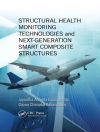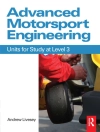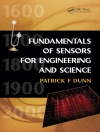The considerable interest in graphene and 2D materials is sparking intense research on layered materials due to their unexpected physical, electronic, chemical, and optical properties. This book will provide a comprehensive overview of the recent and state-of-the-art research progress on layered materials for energy storage and other applications. With a brief introduction to layered materials, the chapters of this book gather various fascinating topics such as electrocatalysis for fuel cells, lithium-ion batteries, sodium-ion batteries, photovoltaic devices, thermoelectric devices, supercapacitors and water splitting. Unique aspects of layered materials in these fields, including novel synthesis and functionalization methods, particular physicochemical properties and consequently enhanced performance are addressed. Challenges and perspectives for layered materials in these fields will also be presented. With contributions from key researchers, Layered Materials for Energy Storage and Conversion will be of interest to students, researchers and engineers worldwide who want a basic overview of the latest progress and future directions.
Spis treści
MOF-derived Materials for Extremely Efficient Electrocatalysis;
Two-dimensional Layered Materials for High-performance Lithium-ion Batteries;
Intercalation-based Layered Materials for Rechargeable Sodium-ion Batteries;
Ionic Liquid Electrolytes for Graphene-based Supercapacitors with an Ultrahigh Energy Density;
Properties and Applications of Layered Thermoelectric Materials;
Graphene–Carbon Nanotube Hybrid Films for Highperformance Photovoltaic Devices;
Metal–Organic Frameworks (MOFs) as Potential Hybrid Ferroelectric Materials;
Synthetic Techniques and Functionalization Approaches of 2D Transition Metal Dichalcogenides;
High Electrocatalytic Performance of Twodimensional Layered Mo S2-based Materials for the Hydrogen Evolution Reaction
O autorze
Dr. Zhang joined Peking University as a full professor in 2010. He received his B. Sci and Ph D in physics from Tsinghua University in 1998 and 2002, respectively. From 2002 to 2004 he was a SMF research fellow at National University of Singapore (NUS) and from 2005 to 2006 at Stanford University. He joined the Institute of Microelectronics, A*STAR, Singapore, as a senior research engineer in 2006 and Department of Electronics, Peking University in 2010 as a full professor. His research is focused on the energy transfer and harvesting in nanostructured materials. He is a world recognized expert in the electrical and thermal properties simulation of nano materials. He developed several novel approaches for molecular dynamic, and quantum chemistry simulations. He has authored or co-authored more than 70 publications in the peer-reviewed international journals and conferences, including 5 in Nano letters and Nano Today, and 1 invited review article in Nano Scale. He has delivered several invited talks in the international conferences. His research has gained him a number of international recognition and media highlight. He was awarded with an Outstanding Ph.D. thesis Award in Tsinghua University (2002), Singapore Millennium Foundation Fellowship (2002-2004), and IME Excellence Award (2008). Dr. Zhang’s research achievements are also matched with his competency in teaching. In 2010, his Ph D student received the Chinese Government Award for Outstanding Students Studying Abroad.












